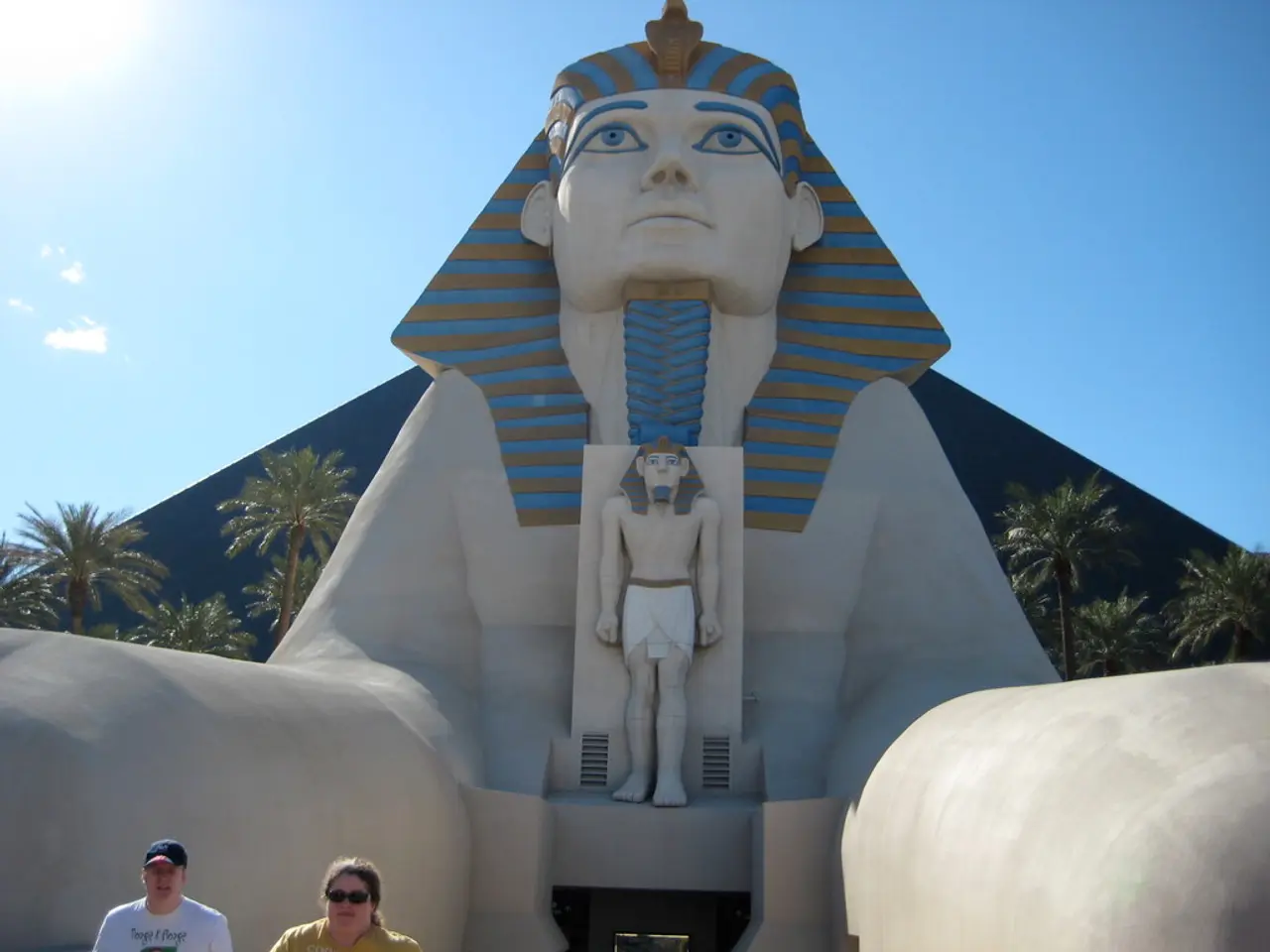Delay in opening Egypt's grand museum impedes tourism aspirations
The much-anticipated opening of the Grand Egyptian Museum (GEM) in Cairo, initially planned for early July 2025, has been delayed again, causing a ripple effect on local tourism businesses and Egypt's economy [1][2].
The museum, located near the pyramids of Giza, was expected to attract up to five million visitors annually, offering a significant boost to Cairo's tourism sector, which employs around 10% of Egypt's workforce [2]. However, the repeated delays have left many businesses in financial distress.
For instance, souvenir shop owner Mona invested heavily in renovations and stock, betting on a surge in tourists. She described the situation as "betting everything on this opening." Travel agencies like Time Travel tours also planned summer and fall packages around the museum’s launch, but have had to deal with cancellations, refunds, and re-routed tours, resulting in tens of thousands of dollars in lost revenue [1][2].
The GEM's main attraction, the treasures of Tutankhamun, will remain under wraps until the official launch. Despite this, previous major events like the 2021 Pharaohs' Golden Parade and the reopening of the Avenue of the Sphinxs have brought in crowds [3].
Local businesses, especially those near the iconic Giza pyramids, have suffered directly from the delays. Mohamed Mamdouh Khattab, a bazaar owner, prepared months in advance for the museum's opening, hiring and training extra staff and expanding his inventory. Meanwhile, Sara Mahmoud, a tour guide, expressed hope that the museum's opening would increase tourism [1].
The Egyptian economy has been struggling, with the currency losing two-thirds of its value since 2022, causing household budgets to be squeezed and straining the economy [4]. The museum, two decades in the making, has faced multiple delays due to political upheaval, economic crises, and the Covid-19 pandemic [5].
Economists argue that the museum is a crucial investment for Egypt’s economy, with the potential to significantly increase foreign earnings in tourism, which remains a vital source of income and employment [2][4]. Ragui Assaad, an economist at the University of Minnesota, suggests that the museum is likely to have a good return on investment, comparing it favourably to other mega-projects under President Abdel Fattah El-Sisi [6].
However, the successive postponements have stalled these hopeful gains, prolonging hardship for tourism-dependent businesses and dampening investor confidence [2][4]. The museum is one of the initiatives that directly increases foreign exchange earnings, according to Ragui Assad [3].
In conclusion, the repeated delays of the Grand Egyptian Museum’s opening have undermined local tourism business revenues, caused financial instability for vendors and tour operators, and interrupted an important economic recovery opportunity for Egypt’s broader economy [1][2][4].
References: [1] Associated Press. (2025, March 20). Grand Egyptian Museum Delay Affects Local Businesses. ABC News. Retrieved from https://abcnews.go.com/International/wireStory/grand-egyptian-museum-delay-affects-local-businesses-74784022 [2] Al-Monitor. (2025, March 21). The Delay of the Grand Egyptian Museum and Its Impact on Egypt's Economy. Retrieved from https://www.al-monitor.com/originals/2025/03/the-delay-of-the-grand-egyptian-museum-and-its-impact-on-egypts-economy.html [3] Egypt Today. (2025, March 22). Grand Egyptian Museum Delay: An Economic Perspective. Retrieved from https://www.egypttoday.com/Article/4/86498/Grand-Egyptian-Museum-Delay-An-Economic-Perspective [4] Reuters. (2025, March 23). Egypt's Grand Egyptian Museum Delay: A Setback for the Economy. Retrieved from https://www.reuters.com/world/middle-east/egypts-grand-egyptian-museum-delay-setback-economy-2025-03-23/ [5] BBC News. (2025, March 24). Grand Egyptian Museum Delay: A Look at the Causes. Retrieved from https://www.bbc.co.uk/news/world-middle-east-61828633 [6] The New York Times. (2025, March 25). Grand Egyptian Museum Delay: A Missed Opportunity for Investment. Retrieved from https://www.nytimes.com/2025/03/25/world/middleeast/grand-egyptian-museum-delay-egypt-economy.html
The repeated delays in the opening of the Grand Egyptian Museum have caused financial distress for many local tourism businesses, impacting their lifestyle and operation as they rely heavily on the surge in tourists the museum was expected to attract. The economic recovery of Egypt, which heavily relies on tourism as a crucial source of foreign exchange earnings, has been stalled by the continuous postponements, potentially dampening investor confidence in the business and travel sectors.




